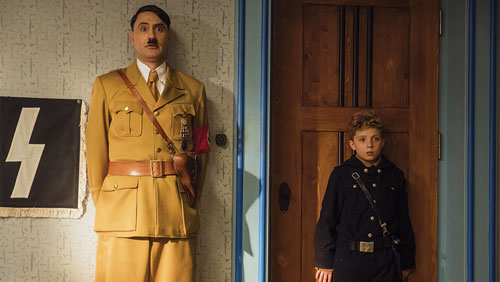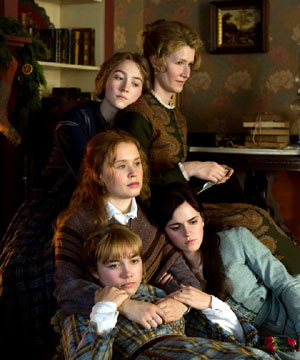|
Because I am a monthly magazine film reviewer, I do not see all the movies in current release, which means that an annual Top 10 movie list would be a useless exercise for me. Over the course of the 2010s, however, I have seen enough of the films released in the past decade to have an idea of which were the most important, the most impressive, or simply the most pleasing of them.
Many critics have already noted the biggest change that came to the cinema in the 2010s: the method of release. Netflix, Amazon Prime and other streaming services now increase the likelihood that, when audiences encounter a first-run feature, they will do so in their living rooms. How this affects the making and financing of films has already been the subject of articles by Martin Scorsese and others. How this will affect the reaction of audiences to movies, or the choice of which movies get made, will become apparent with time.
As with every cinematic decade, the movies of the 2010s reflected the concerns and esthetics of their times. At their best, they did so in remarkably fresh, exciting ways, and those were my favorite films of the decade. The following list, compiled in ascending order of preference, groups together films that offered different perspectives on similar themes, but all in ways that illuminated the human condition in moving and pertinent ways.
10. The effect of tyranny on the human spirit is a constant theme of literature, drama and film, and some of the finest films of the 2010s dealt in compelling ways with the damage wrought by Nazi and Soviet tyranny, both at their height and in their aftermath. Pawel Pawlikowski’s Cold War, Taika Waititi’s Jojo Rabbit, Florian Henckel von Donnersmarck’s Never Look Away and Atom Egoyan’s Remember are wildly different in style and intent, but all present unforgettable portraits of human souls strengthened, warped, or obliterated by the rule of despots.
 |
9. There are films that cannot easily be classified, but which present singular characters who illuminate nearly unreachable corners of the human condition. Jeff Nichols’ Take Shelter presents a man (Michael Shannon) beset by nightmare visions of a cataclysmic tornado. Joel Edgerton’s The Gift concerns the cat-and-mouse psychological game a mysterious man (Edgerton) plays with an old high school classmate (Jason Bateman). Martin McDonagh’s Three Billboards outside Ebbing, Missouri shows what happens when a woman (Frances McDormand) takes action to avenge her daughter’s murder, arousing the ire of the local sheriff (Woody Harrelson) and his drunken deputy (Sam Rockwell). Kenneth Lonergan’s Manchester by the Sea depicts a man (Casey
Affleck) whose life essentially shuts down in the wake of an appalling tragedy. Steve McQueen’s Widows is a panoramic view of big-city corruption, centering on the widow (Viola Davis) of a career criminal (Liam Neeson) who has the choice of leading one of her husband’s uncompleted heists or following him to the grave. These films bear little resemblance to each other in synopsis, but they are alike in that they take us places we don’t expect to go, and leave us gasping at their sheer, unexpected power.
8. At a time when the practice of investigative journalism is denigrated daily by the current occupant of the White House and his supporters, any movies that remind us of its value are welcome. Tom McCarthy’s Spotlight, presenting the courage and diligence of a team of Boston Globe reporters in unveiling a coverup of pedophile priests, reaffirms forcefully that a decent world cannot exist without a free press.
7. For nearly three decades, Quentin Tarantino has reigned as Hollywood’s consummate fanboy of exploitation flicks, as well as its chief advocate of cinema as a transformative art. In Once Upon a Time…in Hollywood, Tarantino presented his most compelling movie to date, a perfect synthesis of his obsessions, in the story of a B-list actor (Leonardo DiCaprio) and his stuntman best friend (Brad Pitt) living at the time of the Manson Family.
6. In Boyhood, Richard Linklater did something very simple, but so risky that it’s no wonder no one tried it before: he filmed a boy actor (Ellar Coltrane) as he grew naturally over twelve years, presenting his character’s story from first grade to his freshman year in college. The result was a film that is uniquely funny, touching, and humane. Taking a more traditional story—Louisa May Alcott’s Little Women—Greta Gerwig gave us a sterling example of how to update a beloved story in a fresh, resonant manner while remaining true to both the spirit and the letter of the original. Splitting the difference, Almodovar gave us the full panorama of his life in Pain and Glory, in a moving demonstration of Wordsworth’s dictum that the child is father to the man.
 |
5. The mainstream acceptance of LGBTQ-themed films arguably began in the last decade with Brokeback Mountain; it became official in the 2010s with the Best Picture Academy Award given to Barry Jenkins’ Moonlight, which is as close to lyric poetry as feature films ever get. Three equally great films—Luca Guadagnino’s Call Me by Your Name, Todd Haynes’ Carol, and Tom Ford’s A Single Man—ensure with Moonlight that gay and lesbian characters will never again be relegated to the Don’t Ask, Don’t Tell ghetto where some would still place them.
4. Since the 1980s, Jim Jarmusch has been a reliable purveyor of witty, deadpan movies that stretch the limits of the adjective “quirky.” In 2016, Jarmusch released what I regard as his masterpiece, Paterson. Adam Driver plays a man who drives a bus by day and writes poetry at night; it is the best film I have ever seen about the process of writing, as well as an unforgettable portrait of a pure, incorruptible, shining spirit.
3. The Western is a genre that has fallen into disrepute, but David Mackenzie’s Hell or High Water shows there’s life in the old saddle tramp yet. Set in modern-day Texas, the film shows two Texas Rangers chasing two bank robbers across a landscape filled with junkyards, closed businesses, and billboards advertising debt relief. Taylor Sheridan’s brilliant screenplay contains some of the most scintillating dialogue in any recent movie, covering such subjects as poverty, racial conflict (in this case whites vs. Native Americans), and the clash between modern technology and a culture that hasn’t changed appreciably since the days of the Alamo. And, always, the banks have their boots on everybody’s necks. It’s as if John Ford did a triple remake of The Searchers, My Darling Clementine, and The Grapes of Wrath.
2. The 2010s saw a steady stream of distinguished films about the black experience, with African-American and Anglo-African directors and screenwriters creating works of astonishing power. Many of these were difficult to watch—especially for a white boy from rural Ohio who turned ten years old the day after the March on Selma—but their truth and conviction could not be denied. Moonlight, mentioned previously in the context of gay films, is just as pertinently included in the category of black films. Other extraordinary films in this group include—but are not limited to—Jenkins’ If Beale Street Could Talk, Ava DuVernay’s Selma and 13th ,Spike Lee’s BlacKkKlansman, Denzel Washington’s Fences, Ryan Coogler’s Fruitvale Station, Steve McQueen’s 12 Years a
Slave, and—my own favorite—Raoul Peck’s I Am Not Your Negro, a dreamlike and mournful meditation on the African-American experience, with Samuel L. Jackson reading the words of James Baldwin.
1. Master-servant relationships, never a specialty of mainstream (read: white) American filmmakers, have had much more currency abroad as a theme for movies. My choice for the two greatest films of the decade present diametrically opposed portraits of those relationships—Alfonso Cuaron’s Roma, a Mexican drama about a maid who literally saves the family she serves, and Bong Joon-ho’s Parasite, a South Korean black comedy about an impoverished family that cons its way into the trust of clueless millionaires, only to meet an unexpected comeuppance. Each in its own way, both films offer sharp, sometimes shocking, and ultimately moving insights into society, class, and familial love. In a time when social stratifications are widening around the world, Roma and Parasite are sadly, overridingly relevant.
There they are—my thirty ten best movies of the 2010s. You may regard it as cheating, and lacking a sufficiently stringent critical sensibility, to have so many films at the top. In that case, you would be less than pleased to see the pileup of movies in my tie for eleventh place. I started to make the list, but when I exceeded seventy films, with worries that I was excluding others which deserved mention, I gave up. Some of the films I admired without reservation, but they didn’t fit in the categories I created for the Top Ten list. Some had serious flaws, but also extraordinary qualities I could not ignore. Some were completely lightweight but completely delightful. In any case, if you want to know if your favorite movie made my Runners-Up list, or if you want to excoriate me for not including it in my main list, you know where to write me.
|